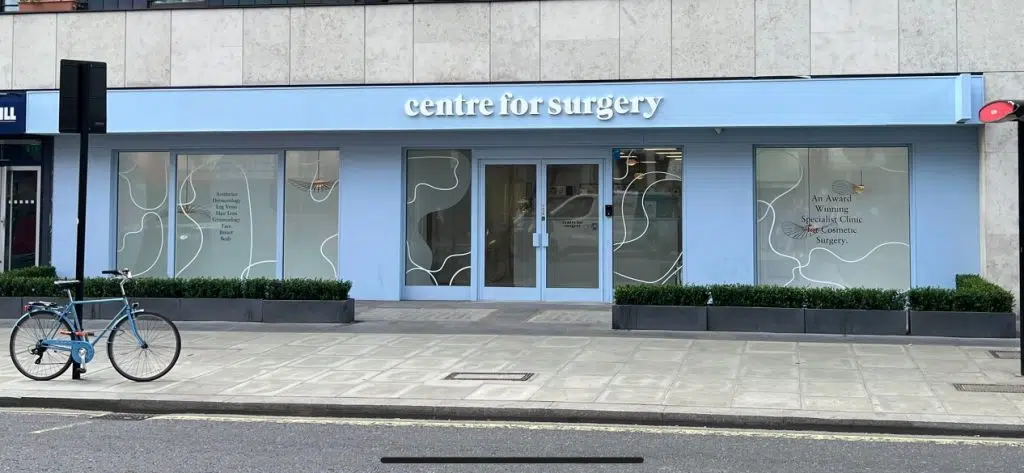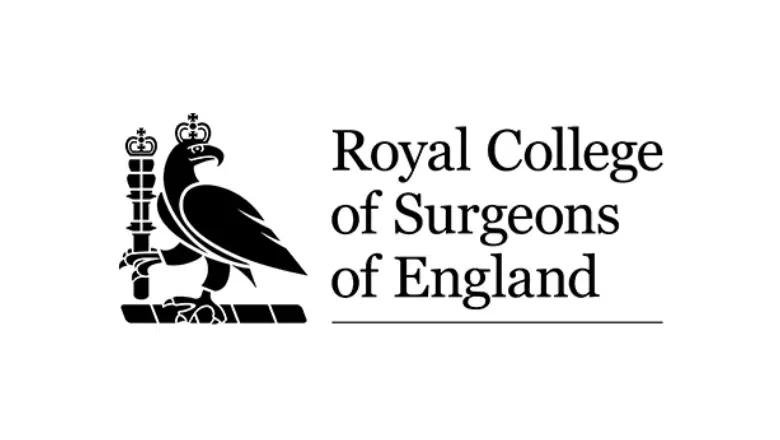Vaginoplasty is also known as vaginal tightening surgery and is a gynaecology procedure aimed at reconstructing the pelvic floor as a result of stretching caused by childbirth. Women choose to have a vaginal tightening surgery for several reasons, including the natural ageing process leading to vagina laxity as well as birth. In some cases, both factors can be contributing causes to the development of vagina laxity. Vaginal tightening surgery it’s highly effective for tightening the vagina muscles, and this can contribute to an improvement in stress incontinence symptoms and address pelvic organ prolapse, which often coexists with stress incontinence. Women often notice their sexual satisfaction to be markedly improved following vaginal tightening surgery.
RELATED: Vaginoplasty FAQs – Q&A about Vaginal Tightening Surgery
Vaginoplasty Procedure
The vaginoplasty procedure is a surgical intervention designed to enhance the structure and function of the vagina. This is typically achieved through repairing the damaged musculature, reinforcing vaginal tissue, excising surplus skin, tightening lax tissue, and reducing the dimensions of the vaginal opening. This procedure is most often performed under local anaesthesia for the patient’s comfort.
Several women experience vaginal laxity and stretching as a result of muscle separation following childbirth. This can lead to a range of issues, including sexual dysfunction and a diminished sense of self-confidence. Moreover, vaginal laxity can contribute to incontinence, thus significantly impacting the quality of life. When performing a vaginoplasty to address vaginal looseness, the surgeon can rejoin separated muscles, thereby tightening the vaginal walls. Surplus skin can be removed upon request to enhance the aesthetic appearance.
The recovery and aftercare associated with a vaginoplasty are dependent on the specifics of the individual surgery. It is customary for patients to receive comprehensive aftercare instructions for post-vaginoplasty recovery before being discharged from the hospital. Nevertheless, it is helpful for patients to have a broad understanding of the anticipated recovery timeline. The recovery after vaginoplasty surgery is known to be fairly straightforward; however, it is essential to refrain from several activities during the recovery period to make sure that healing progresses uneventfully.
Recovery after Vaginoplasty
The recovery period following a vaginoplasty varies from patient to patient, but generally speaking, one can anticipate a full recovery within six to eight weeks post-surgery. Despite this, most patients can resume their daily routines within a few days after the procedure.
It is not uncommon for patients to experience a range of symptoms in the days and weeks following surgery. These may include swelling, tenderness, bruising, and soreness in the operated area. Post-operative symptoms may also consist of discharge and light bleeding, which are generally considered to be normal in the immediate aftermath of the procedure.
RELATED: Is Vaginoplasty Painful?
However, if you observe excessive or abnormal bleeding, it is strongly advised that you contact your medical professional immediately. The same applies to any severe pain or swelling, which does not appear to diminish as time progresses but seems to be worsening. These could potentially indicate complications in the healing process and should be promptly addressed to ensure a safe and successful recovery from your vaginoplasty.
What activities should I avoid in the first few days after vaginal tightening surgery?
As with all types of vaginal surgery, It’s important not to overdo it in the first few days after vaginoplasty surgery. Keeping mobile after the procedure and maintaining good hydration to improve healing is important. It is, however, essential to ensure you get proper rest to facilitate optimal healing after vagina tightening. Vagina tightening surgery often involves complex muscle repair, and patients who are able to sleep for the recommended period of time will find that the risk of developing wound complications is significantly minimised. Patients should make sure to sleep on their back for the first month after vaginoplasty to avoid any rubbing on the area of the surgery.
There are several common side effects which are to be expected after vagina tightening surgery, and these include a mild degree of bruising, swelling and discomfort. The symptoms should settle down after the first week, with a full resolution by the end of week two. If you experience mild to moderate discomfort after vagina surgery, it is essential to take the prescription painkillers given to you after the surgery to reduce discomfort. Maintaining good levels of mobility is essential to reduce the risk of venous thromboembolism.
Localised swelling in the area of the vaginal area can be effectively controlled with the application of cold packs for limited periods of time. It’s important not to apply the cold packs directly against the skin to avoid skin necrosis. We would always recommend wearing cotton loose-fitting clothing to avoid any irritation or rubbing against the surgical site.
Washing after vaginoplasty can be commenced two days after surgery, and it is important not to rub the area to avoid potential wind breakdown. You should also avoid any soaps or other topical agents, as these could increase the risk of developing a fungal infection. A bath should be avoided for the first four weeks after surgery, including saunas, steam rooms and Jacuzzis. Vaginoplasty recovery is very straightforward as long as patients comply fully with the surgeon’s post-operative instructions.
All stitches used during vaginoplasty surgery are absorbable in nature, which means you will not need to return to have them removed at your post-operative appointment. You will still need to attend your nurse’s post-operative appointment for a full wound check and to receive further postoperative instructions.
Our surgeons are highly experienced in vaginal tightening surgery and have never used prosthetic materials as part of vaginal repair, such as synthetic mesh, which has been shown to result in adverse outcomes following vagina surgery.
When does sensation return after vaginoplasty surgery?
After vaginal tightening surgery, it is common to develop a degree of post-operative swelling, and this can result in an impaired sensation that presents in several different ways. Some women may notice a loss of feeling in the area, while others may notice an increased sensitivity even to light touch. In the vast majority of cases, these changes are temporary and last no more than 3 to 4 weeks. If changes in sensation are persistent beyond four weeks, we would advise being assessed by your surgeon as, in some cases, sensation may be impaired permanently. Fortunately, vaginoplasty risks are very low when carried out by an experienced surgeon at Centre for Surgery in London. At your preoperative face-to-face consultation with a surgeon, all the risks and potential complications of vaginal tightening surgery will be explained.
When is the best time to restart physical activity after a Vaginoplasty?
Vaginoplasty is a delicate reconstructive operation, and it is important to restrict certain physical activities in the early postoperative period to avoid developing postoperative complications, which could affect wound healing and possibly increase the risk of wound infection. You should avoid any type of strenuous activity that significantly elevates your heart rate, such as running, and you should avoid certain resistance exercises, such as lifting weights. It is also important to maintain a high-fibre diet to avoid developing constipation. This is to ensure that you do not strain excessively on the toilet and protect the healing vagina surgery area.
There are several physical activities, such as cycling or running, which should be avoided for the full six weeks as these activities can irritate the vagina. Steam rooms and saunas should be avoided for a minimum of eight weeks. Generally, in the vast majority of cases, patients have recovered fully from vagina-tightening surgery at the six-week mark. At this point, women can resume the vast majority of physical activities.
To get the best possible results after vaginoplasty surgery, we advise complying fully with the post-operative instructions. Your surgeon will emphasise the important dos and don’ts during your face-to-face consultation.
Our post-operative nurses are on hand continuously to assess you if you have any concerns following vaginal tightening surgery. Our post-operative program was described as ‘outstanding’ by the Care Quality Commission, and we believe good post-operative care is as important as the procedure itself to get the best possible outcomes. This means that patients should avoid unhealthy lifestyle habits such as smoking or drinking and should avoid certain medications that could increase the risk of post-operative bleeding, such as aspirin or medicines containing aspirin.
When can I have sex after vaginoplasty?
Sexual intercourse can be safely restarted approximately six weeks after the procedure. However, it is important to follow the advice given by your surgeon, as this will depend on the healing process. You should feel entirely comfortable before considering sexual activity involving penetration to minimise certain symptoms, such as excessive pain or the development of soreness following intercourse, as this could impact the wound incisions, leading to wound breakdown.
To minimise the risks, we would advise an adequate period of time for foreplay to ensure that the vagina lubrication is sufficient to permit satisfactory intercourse. For women who are going through menopause and may have symptoms of vagina dryness or are having treatment for a medical condition which affects vagina secretions, we would advise using an appropriate water-soluble lubricant which is non-irritant. Women should also remember that there is a wide variety of sexual activities which do not involve intercourse, which may help with proper healing after vaginoplasty. In all cases, you should ask your surgeon to advise on when you can resume sexual intercourse safely. During the first two weeks, you should avoid the application of sanitary products which have to be inserted inside a vagina. External sanitary products such as sanitary pads are perfectly fine to use instead of tampons to minimise the risk of irritation and discomfort to the wound incisions.
Why choose Centre for Surgery?
If you would like to know more about vaginoplasty, please get in touch with our friendly and experienced patient coordinator team to book a face-to-face consultation with an expert surgeon at our Baker Street clinic in central London.










